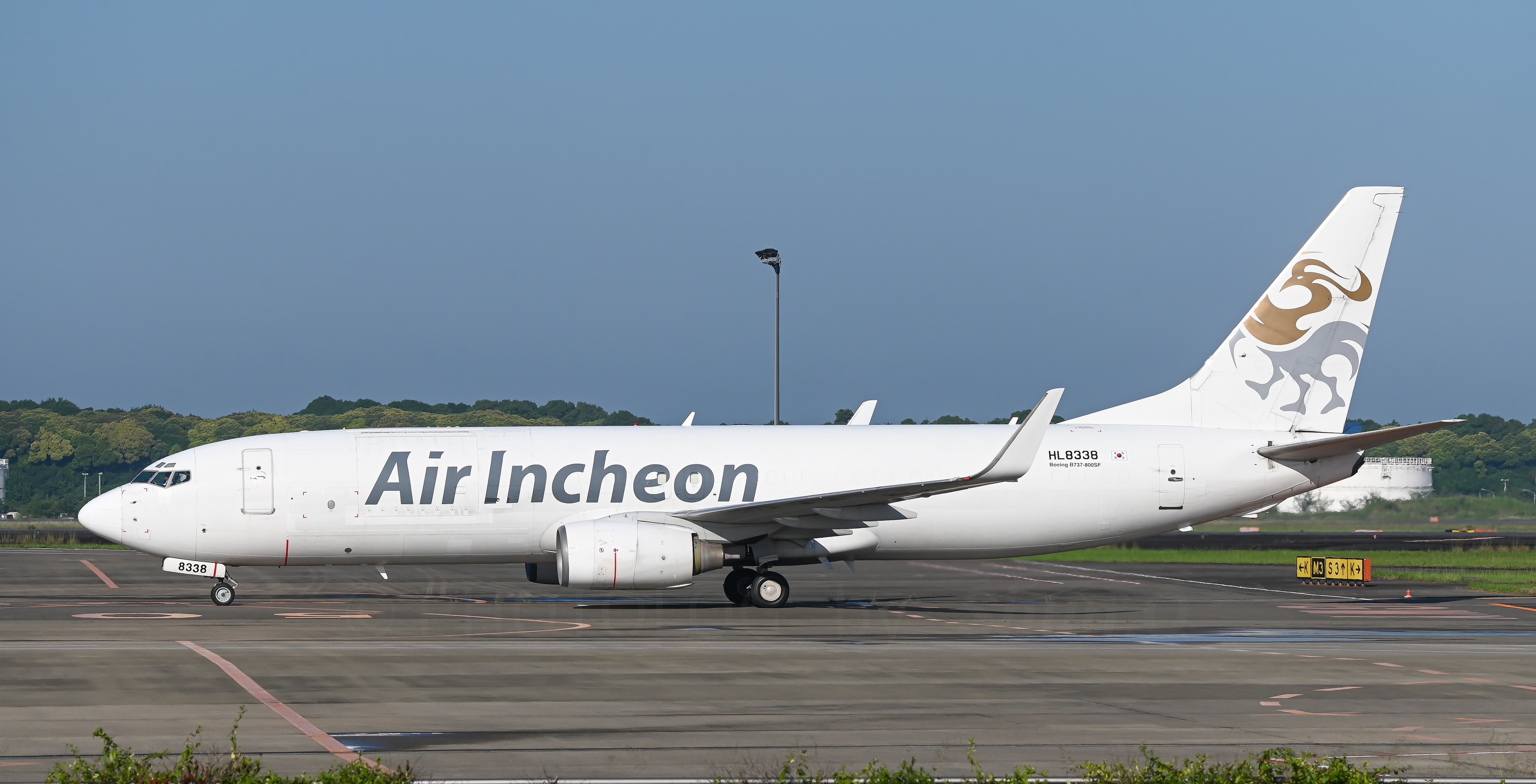


The merger between the Korean Air and Asiana Airlines is creating ripples in Korean Aviation industry, and one such effect is on Air Incheon, as the freighter carrier is expected to rise to the second largest cargo operator in South Korea after Korean Air by acquiring the cargo division of Asiana Airlines. The company aims to launch 'Integrated Air Incheon' in July, planning a new company name and aircraft repainting.
Air Incheon is going to sign a main contract to acquire Asiana Airlines' cargo business on the 16th. Licensing is underway with the goal of launching the integrated Air Incheon on July 1.
The plan is to lease one B747-400F for long-haul use in order to obtain a license for U.S. cargo routes before the launch of the integrated Air Incheon.
An Asiana Airlines official said,
"We are leasing one cargo plane through a separate lease agreement for licensing purposes," and "this is in accordance with the schedule for the sale of the cargo division."
However, there is significant backlash from some employees set to move from Asiana Airlines to Air Incheon. They are concerned that they will receive unfair treatment compared to Korean Air in terms of wages, benefits, and job stability.
Once the contract is finalized, Air Incheon will have a total of 15 aircraft, including 11 cargo planes from Asiana Airlines in addition to its existing four cargo planes, becoming the airline with the second most cargo planes after Korean Air (23 planes).
According to the agreement, 10 B747-400Fs and one B767-300F will be transferred from Asiana Airlines to Air Incheon in the future, and the final transfer will take place on July 1 with the consolidation.
The current sale will proceed by partitioning the cargo division of Asiana Airlines and merging it into Air Incheon. Air Incheon plans to hold a shareholders' meeting soon to obtain approval for the partitioning and merger.
The transaction will be finalized when Air Incheon pays a total of 470 billion won to Asiana Airlines through a paid-in capital increase.
Air Incheon is preparing for business expansion with the goal of launching 'Integrated Air Incheon' on July 1. To accommodate the growing workforce, they have decided to secure new premises at the Magok Wonk Grove Building in Gangseo-gu, Seoul.
Sources say, Air Incheon recently applied for a license from the U.S. Department of Transportation to operate regular cargo routes. The application routes are
Meanwhile, Air Incheon is in the process of consolidation, including the appointment of new CEO Kim Kwan-sik, a former Kumho Asiana Group employee, and the launch of the Air Incheon-Asiana Cargo (Cargo) Integration Task Force.
With approximately 800 employees from the cargo division of Asiana Airlines joining the existing workforce of about 200, around 1,000 people will be working there. Currently, Air Incheon has an office at the cargo terminal of Incheon International Airport and a Seoul office in the Ryeosan Building in Gangseo-gu, Seoul.
Air Incheon is also rapidly expanding its overseas routes. Recently, Air Incheon applied to the U.S. Department of Transportation for permission to operate cargo regular routes. Air Incheon previously did not have any routes to the Americas.
Before the acquisition contract is finalized, they decided to first lease an Asiana Airlines’ cargo aircraft. Air Incheon is close to acquire one B747-400F from Asiana Airlines.
However, the process is not smooth. The significant dissatisfaction among employees from Asiana Airlines who will move to Air Incheon poses a challenge.
According to the sale conditions, employees working in the cargo division, including pilots, maintenance, and cargo sales staff, will transfer to Air Incheon. Some workers from general support departments will also be included. They believe there will be substantial differences in wages, job stability, and benefits between Korean Air and Air Incheon.
If Asiana Airlines is absorbed by Korean Air, the treatment of Asiana Airlines staff could improve to that of Korean Air. One of the airline's benefits includes flight discount privileges, but Air Incheon does not have passenger planes, making it difficult to enjoy related benefits.
The fact that Air Incheon's largest shareholder is a private equity fund also raises concerns about the possibility of a resale in the future.
Air Incheon may also consider improving employee treatment to boost morale. Kim Kwan-sik, the representative of Air Incheon, noted,
"Korean Air and Asiana Airlines are long-established large airlines (full-service carriers), so there will inevitably be differences compared to Air Incheon right away," adding,
"Through this merger, we will work hard in management to generate more profits, enhance corporate value, contribute to our society, and share with our employees."
Related Article......
